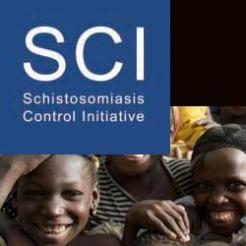A British initiative has come second in a league table of international aid schemes which aims to find the best opportunities for donors to accomplish good with their donation.
Give Well’s 2011 international aid process review assessed charities from a wide variety of sources including recommendations, other lists of highlighted charities, past applicants and grantees of impact-focused foundations.
Some 223 organisations were flagged before a final 98 were contacted for further assessment. Imperial College London’s Schistosomiasis Control Initiative (SCI) made the final cut, coming second in the table of top-rated charities, missing out on the top spot to the international Against Malaria Foundation.
GiveWell co-founder, Holden Karnofsky, said: “Our top two charities are outstanding on all fronts… They execute proven, cost-effective programs for helping people. They have strong track records. They have concrete future plans and room for more funding. They are transparent and accountable to donors.”
The SCI focuses on ridding the world of ‘neglected tropical diseases’ which are prevalent in the world’s poorest countries. Its director, Professor Alan Fenwick, hopes that the Give Well endorsement, as well as another recommendation by the UK’s Giving What We Can, will help to increase donations: “From the technical side (the SCI) is focussed on the diseases of the poorest populations, and improves the quality of life particularly of children by offering cost-effective treatment in partnership with pharmaceutical companies, the World Health Organisation and most importantly the governments of the African nations. If donations increase as a result of these endorsements, we would hope to increase our coverage of treatments in the countries we work in and also assist more countries in Africa,” he said.
Evaluation process
Charities assessed under Give Well’s review undertake a rigorous examination of their effectiveness. After identifying a broad base of charities to consider, many are knocked out of the running at an early stage after assessment shows they are either too experimental, or do not highlight a ‘promising cause’. The remaining charities are then contacted and asked questions about effectiveness, monitoring, evaluation processes and where there is room for funding. The responses are used to consider whether the charity is likely to receive a top recommendation. Three top contenders are then chosen and field visits undertaken for investigation of their projects.
Both the AMF and SCI received their recommendation because of their “focus on a program with a strong track record and excellent cost-effectiveness”. While the AMF was also celebrated for its “standout transparency and accountability”, the SCI was highlighted for its “demonstrated results” that showed the project has been successful in reducing the prevalence of infection in the areas studied by GiveWell.
While the SCI works under the Imperial College of London as an exempt charity in the UK, the majority of its funding is derived from the Bill and Melinda Gates Foundations in the US, which granted a £20m award towards its establishment in 2002, the United States Agency for International Development, and international philanthropy company Geneva Global.
Other charities recognised as 'standout organisations' include GiveDirectly which offers a method to send money directly to the poor, and Innovations for Poverty Action, which carries out research on aid primarily in the developing world and advocates its use in decision-making. KIPP Houston, Nyaya Health, Pratham and the Small Enterprise Foundation are also recognised as standout organisations this year.









